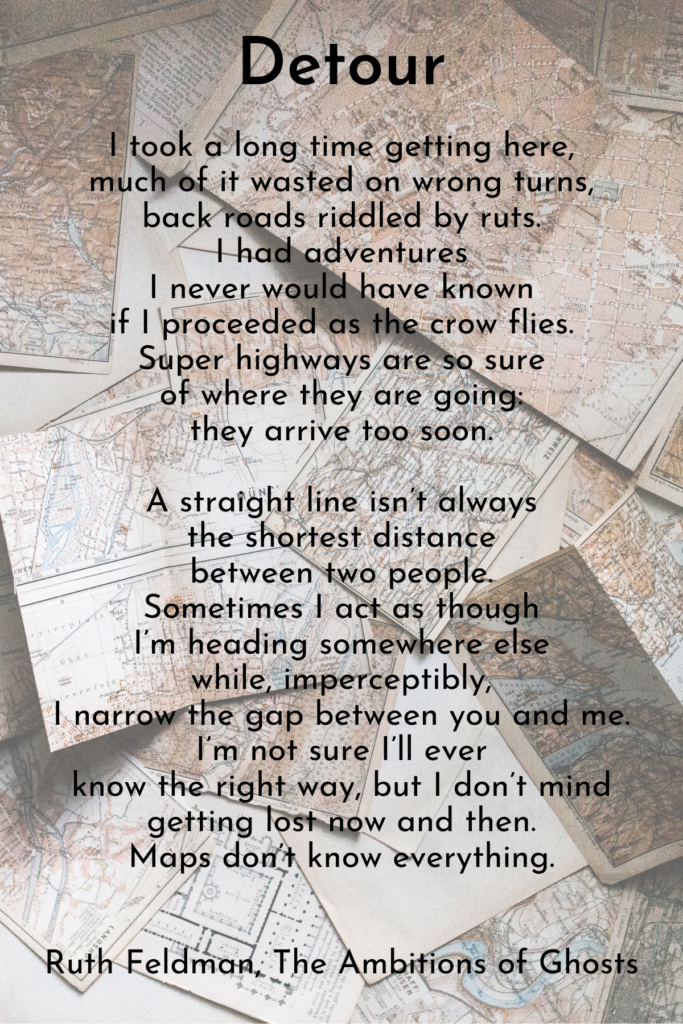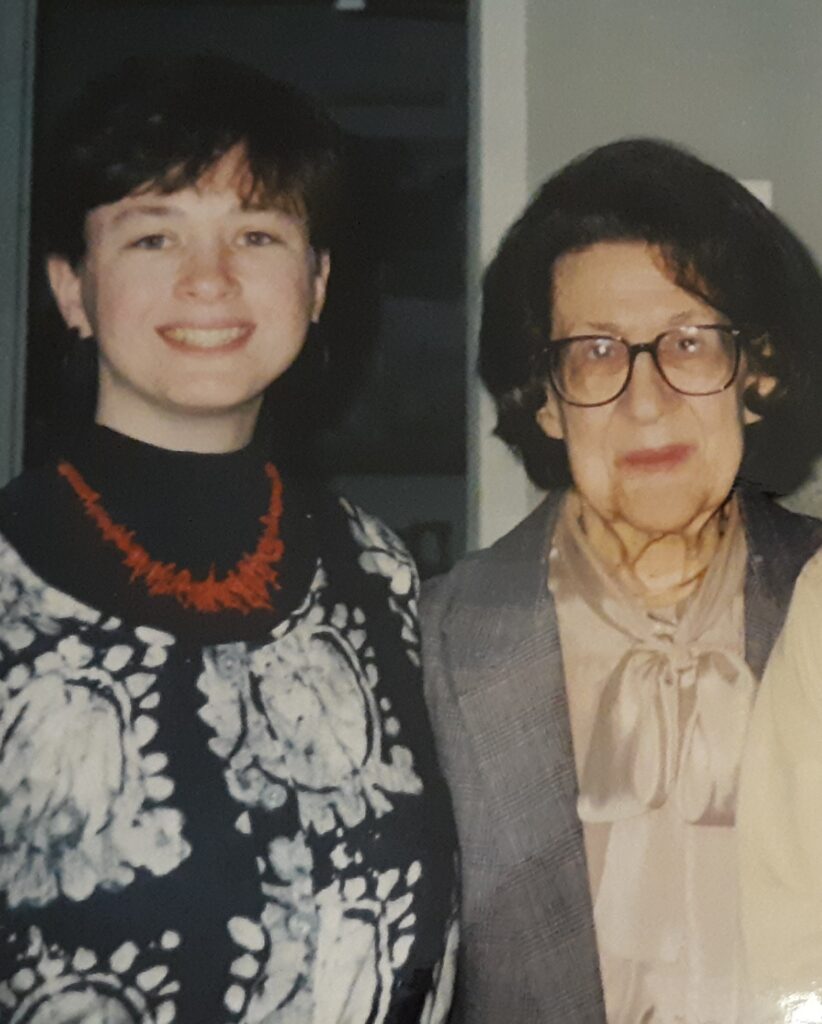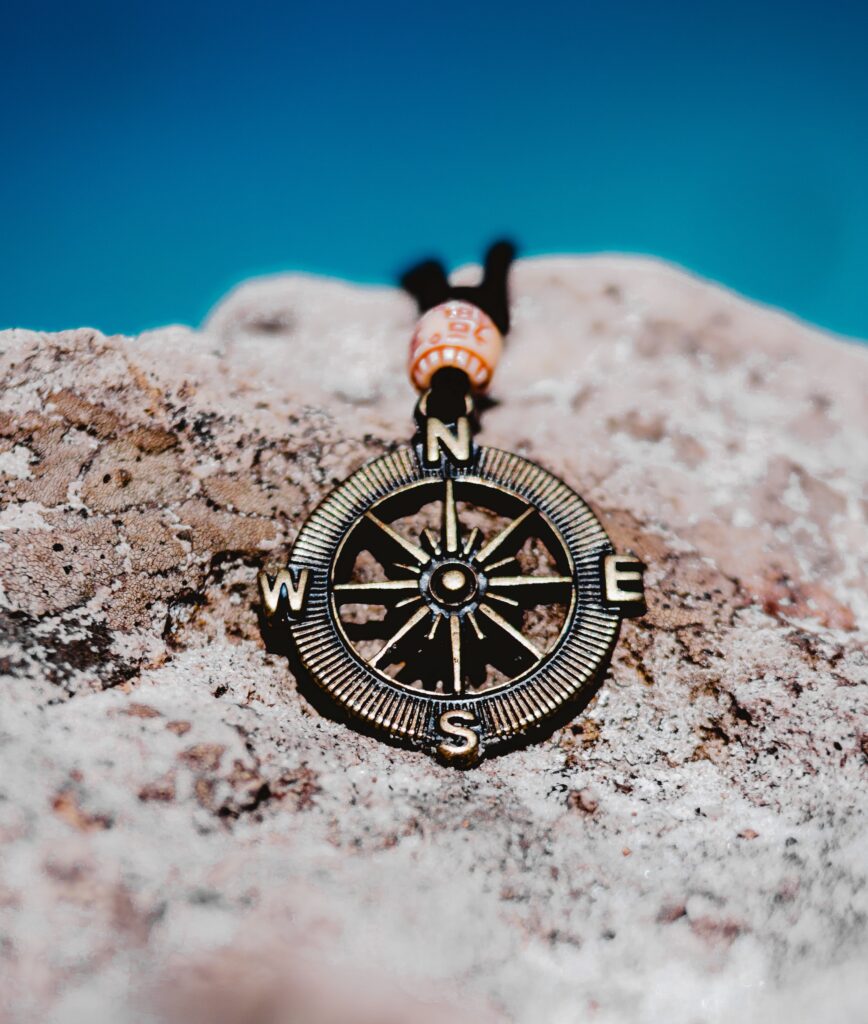on the occasion of the ordination of Gregory Jones
October 18, 2020
Reverend Karen G. Johnston

In addition to Ruth Feldman’s “Detour,” I offer two brief quotes. First, from the 20th century Jewish philosopher, Martin Buber:

The second is from Joy Harjo, member of the Muscogee Creek Nation, current U.S. Poet Laureate. She wrote it in the introduction to her book, How We Became Human:

A neuroscientist has found that navigating our way without using a GPS increases that part of our brain that just might help offset cognitive impairments later in life.
If we hold as true the fractal nature of reality, then we must wonder – and begin to imagine into being – that our acts of navigating without maps, electronic or otherwise; that our actions of attending to so-called wrong turns; could be journeys filled with Buber’s secret destinations, and Harjo’s sacred all-ness.
Before going much further, I must confess: I do worry that Harjo’s certainty is misplaced, that it might be a form of spiritual by-passing, for as much as there are happy endings, there are also rotten ones. Some get lost along the way, unintended detours riddled with ruts so deep we cannot climb out of them. Beloveds who cannot be retrieved or returned or resurrected,except in the most metaphorical of ways. I say a blessing over the memory of those gone from us, some stolen, some just gone too soon.
I say just a bare few of their names:
Breonna Taylor
Jonathan Price
Tony McDade
Heather Heyer
Elandria Williams
And alongside that worry about spiritual bypassing, alongside grief and rage, I hold also…what?
Possibility.
Potential.
Not for progress – we left that behind in the 20th century. But for emergence, for co-creation, for not only listening to the world we dream of, but dreaming it into being, without a map to show the way.
The secular American social philosopher, Rebecca Solnit, and the Christian public theologian, Barbara Brown Taylor, each suggest that we should practice getting lost. On purpose. And if not choosing to, then assenting once it happens. Taylor reminds us that if we do not start, now, choosing fairly low-risk ways of being lost, how will we handle it when “life’s big winds” knock us off course? She reminds us that the skills needed for literal lostness are the ones we need for other forms: managing our panic; marshaling our resources; looking around to see where we are; openness to the offerings of this unexpected development.[i]
Unitarian Universalism is lost. Some might call it trying to redefine ourselves. Others that we are rooting our authentic selves in the 21st century. It’s both right and wrong, what some our Christian detractors have claimed from the start ~ that we are one dangerous, gigantic, god-killing wrong turn.
Instead, I believe that we have taken a detour. Not just a semantic shift, but a true re-orientation. Some of the wisest of us, having noticed that we were lost/are lost, instead of immediately trying to find our way back, are offering to find our way…our way forward?
Maybe. Perhaps just our next way. And then the next.
Potawatomi biologist/writer/poet Robin Wall Kimmerer describes Abrahamic religions, with their commandments detailing right and wrong, as maps. [ii] What she was taught of indigenous spirituality is more like a compass: pointing in a direction, and then you just have to find your way.
Unitarian Universalism, even with our sixth source of
Spiritual teachings of Earth-centered traditions which celebrate the sacred circle of life and instruct us to live in harmony with the rhythms of nature.
does not resemble authentic indigenous spirituality. Still, there is something powerful within Unitarian Universalism and it is worth respectfully borrowing that metaphor: a compass, not a map.

Comfort with getting lost.
Agreeing to not rely on GPS, which was, no doubt, programmed by white supremacy culture, anyway.
When Greg first asked me to preach at his ordination, I asked if he had already chosen a reading.
His first answer was supplanted by an email arriving in my inbox minutes later. Well before we met during his first year at seminary and my last, he had a poem taped to his mirror. It was the one you heard earlier, “Detour,” by Ruth Feldman.

Ruth was my Great Aunt, a relative to whom I was fiercely devoted in the final decade before she died, having lived a life filled with tragic, delicious, and drama-filled detours. About whose life – and I do not think that Greg knows this part – I preached my very first sermon, as a lay person, nearly sixteen years ago.
Greg has told me that he experiences the poem as describing not only his life, but an essential aspect of his ministry: not only a willingness to get lost, but an appreciation for what one finds along the way, particularly as one who is willing, as Greg is, to move back in order “to support the development and leadership of those [traditionally marginalized and silenced] who are [currently] transforming our UU movement by their courage, insight, and energy.” His words.

What is emerging, in this world where maps don’t know everything? And, in fact, might be leading us the wrong way?
What is possible in this world of secret destinations, where all is sacred?
Pleasure activist, community organizer, and all around badass, adrienne maree brown, suggests that
We are creating a world we have never seen. We are whispering it to each other cuddled in the dark, and we are screaming it at people who are so scared of it that they dress themselves in war regalia to turn and face us. Because of our ancestors, because of us, and because of the children we are raising,there will be a future without police and prisons. Yes. There will be a future without rape. Without harassment, and constant fear, and childhood sexual assault. A future without war, hunger, violence. With abundance. Where gender is a joyful spectrum. Where my nephew would not be bullied for his brilliant differentness. Where each of our bodies is treated like sacred ground, whether we have insurance or not.[iii]
This is Greg’s work, his ministry, the one he has been already conducting and the one to which we are ordaining him today.
This is our work: using the compass of Unitarian Universalism to find our collective way, living a life of integrity and liberation; a life in service of a greater good; a life that if not obliterates oppression, then reduces its harm, hopefully mightily.
In announcing on Facebook on October 4th the death of Unitarian Universalist minister Carl Bretz, his minister (and colleague), Reverend Jake Morrill described Carl as happily welcoming
what he called the “revolutions” among UU clergy in each generation, which he believed necessary to move the faith forward.
Reminds me of Greg – welcoming and celebrating the renewing energies of the revolutions – like the recent report of the Commission on Institutional Change, that keep our Living Tradition alive. Generational revolutions that move the faith forward remind me that Robin Wall Kimmerer says the Original Instructions within her indigenous spirituality call for following them differently “for each of us and … for every era.”
For too damn long, Unitarian Universalist ministers: so much white. Until not that long ago, so much male. And driven by a not-especially-benevolent form of exceptionalism. Were told to be great leaders. In this era, Greg, with your ministry, you are a part of a movement of white, and/or male, and/or cisgender ministers, who recognize that our instructions ~ our compasses ~ are to follow. Our compasses are to make space for those historically and currently pushed to the margins.
That if we are to lead, it is to do so by showing others with similar identities and social locations how to grow resilience, holy curiosity, and the capacity for celebration, particularly in those who feel that we have taken a wrong turn, role modeling to congregant and colleague alike. No to fragility, defensiveness or sabotage. No to gaslighting and gadflying.
~~~
All is not lost, even for this nation, as our flirtation with authoritarianism has moved well-past a one-night stand into a weaponized and self-destructive affair.
All is not lost, even as the world continues its rapacious consumption and the waters are rising, the droughts are multiplying, the fires scorching.
So while we may consent to lostness, to losing our way in order to find it, let me say with a confidence that I did not know I have inside me: we are not lost. At least not in the old fashioned way.
We are, I think, on a right path, perhaps even a righteous path, sacredness all around as every wrong turn has the potential to become right; as our journey emerges with its secret destinations; as we cast aside the maps that don’t know everything.
May it be so. Amen.

Here is the video of the sermon
[i] Taylor, Barbara Brown. An Altar in the World, 2010
[ii] Kimmerer, Robin Wall. Braiding Sweetgrass, 2015
[iii] brown, adrienne maree. Emergent Strategies: Shaping Change, Changing Worlds, 2017